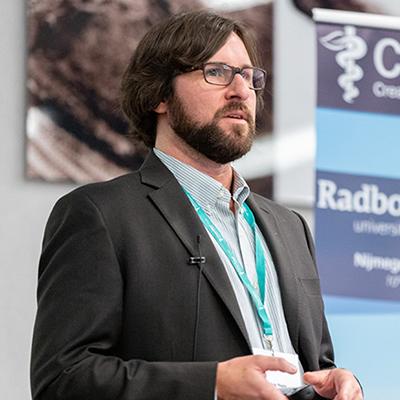Context
As part of their daily activities, hospitals and health systems generate a significant volume of harmful greenhouse gas emissions, which contribute to climate change and undermine the health of the very population they are treating. Not only damaging to the environment and human health, greenhouse gas emissions also result in significant costs to healthcare providers. By targeting investment to reduce emissions through energy efficiency, travel planning, waste management, and sustainable procurement, the healthcare sector can unlock valuable cost efficiencies, as well as support improved health and wellbeing.
As well as reducing emissions, the sector must become resilient in the face of climate change. Health facilities and systems need to build capacity to withstand extreme weather events and prepare for increased need for care as a consequence of climate-related health issues caused by heat waves, flooding, cold spells, drought, or air pollution.
Urgent action is required and the healthcare sector has the opportunity to be leaders in the global fight against climate change - health professionals are uniquely placed to leverage their influential standing in society to raise awareness about the many links between climate change and health.
Launched in 2015 at the Paris Climate Conference, the Health Care Climate Challenge is a Health Care Without Harm initiative that mobilises healthcare institutions to play a leadership role in addressing climate change. Today, more than 180 institutions representing the interests of over 17,000 hospitals and health centres, have joined the Health Care Climate Challenge and are committed to taking meaningful action against climate change.
In 2018, Challenge participants reported commitments to reduce their carbon emissions by more than 16 million metric tons - equivalent to a year of carbon emissions from four coal fired power plants, and an estimated saving of USD$1.7 billion in health costs related to air pollution. Participants also report saving $381 million through energy efficiency and renewable energy generation.
In Europe, 14 institutions, representing the interests of hospitals and health centres have pledged and are participating in the Health Care Climate Challenge.
Goals of this webinar
This discussion-based webinar aims to inform participants about the challenges and opportunities for the healthcare sector in the face of climate change, and showcase examples of best practice in climate-smart healthcare from around Europe.
Participants can expect to learn from existing Health Care Climate Challenge participants about how reporting emissions data has supported their carbon reduction efforts and what steps, both large and small, they are taking to meet their goals.
Webinar recording
Speakers and presentations
Nick Thorp, Network Director - Global Green and Healthy Hospitals project, HCWH
Presentation: The Health Care Climate Challenge
Nick works with GGHH staff around the globe to engage members, build communities of support, and connect them to the tools and resources that can best assist them in achieving their sustainability goals. He has 10 years of experience in the NGO sector working on issues related to the environmental/public health and sustainability.
Clare Topping, Energy and Sustainability Manager - Northampton General Hospital NHS Trust
Presentation: Northampton General Hospital NHS Trust
Clare Topping is responsible for creating and implementing the Trust's Sustainability Strategy, meeting targets for carbon reduction, and waste minimisation. She ensures sustainability considerations are included in Quality Improvement project monitoring and maintains investors in the Environment Accreditation for the Trust. Clare has an in-depth understanding of specialist outsourced services to the healthcare and related markets around the world, including sterilisation services for medical devices and other manufacturers.
Charlotta Brask, Director of Sustainability, Stockholm County Council
Presentation: Region Stockholm
Charlotta Brask has worked with sustainability issues within the health and public transport sector for nearly 15 years and holds a master’s degree in Analytical Chemistry from Lund University. In her role, Charlotta is responsible for overall and strategic environmental and social sustainability issues as well as for the process of monitoring economic sustainability in the Stockholm region - which has reduced its climate footprint by 70% since 1990.
Moderator
Viktor Jósa, Climate Policy & Projects Officer - HCWH Europe
Viktor’s involvement in environmental health stems from his early engagement in the WHO and UNFCCC policy arena. He oversees HCWH Europe’s work on climate and health, and coordinates the European Healthcare Climate Council. Viktor also leads on the coordination of HCWH Europe’s participation in the UN Climate Change process, as well as the organisation’s EU level climate and energy policy and advocacy work.




